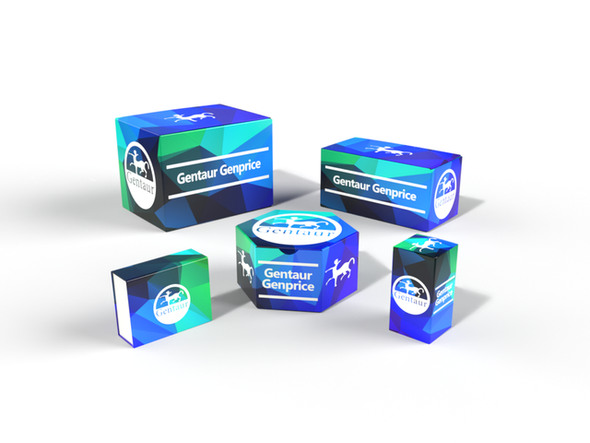740
Mouse DNA repair protein RAD50 (RAD50) ELISA Kit | AE59977MO
- SKU:
- 740-AE59977MO
- Availability:
- Usually ships in 5 working days
Description
Mouse DNA repair protein RAD50 (RAD50) ELISA Kit | AE59977MO | Gentaur UK, US & Europe Distribution
Species Reactivity: Mouse (Mus musculus)
Abbreviation: RAD50
Alternative Name: NBSLD; RAD50-2; hRad50; RAD50 homolog
Application: ELISA
Range: 0.156-10 ng/mL
Sensitivity: 0.078 ng/mL
Intra-Assay: ≤3.8%
Inter-Assay: ≤6.4%
Recovery: 0, 83
Sample Type: Serum, Plasma, Other biological fluids
Detection Method: Sandwich
Analysis Method : Quantitive
Test Principale: This assay employs a two-site sandwich ELISA to quantitate RAD50 in samples. An antibody specific for RAD50 has been pre-coated onto a microplate. Standards and samples are pipetted into the wells and anyRAD50 present is bound by the immobilized antibody. After removing any unbound substances, a biotin-conjugated antibody specific for RAD50 is added to the wells. After washing, Streptavidin conjugated Horseradish Peroxidase (HRP) is added to the wells. Following a wash to remove any unbound avidin-enzyme reagent, a substrate solution is added to the wells and color develops in proportion to the amount of RAD50 bound in the initial step. The color development is stopped and the intensity of the color is measured.
Product Overview: The S. cerevisiae Rad50 gene encodes a protein that is essential for double-stranded DNA break repair by nonhomologous DNA end joining and chromosomal integration. The human RAD50 gene spans 100 to 130 kb. Northern blot analysis revealed that the RAD50 gene was expressed as a 5.5-kb mRNA predominantly in testis. A faint 7-kb transcript, which the authors considered to be an mRNA with an alternatively processed 3-prime end, was also detected. Yeast Rad50 and the predicted 1, 312-amino acid human RAD50 protein share more than 50% identity in their N- and C-termini. The central heptad repeat domains of the proteins have relatively divergent primary sequences but are predicted to adopt very similar coiled-coil structures.
Stability: The stability of ELISA kit is determined by the loss rate of activity. The loss rate of this kit is less than 5% within the expiration date under appropriate storage condition. The loss rate was determined by accelerated thermal degradation test. Keep the kit at 37°C for 4 and 7 days, and compare O.D.values of the kit kept at 37°C with that of at recommended temperature. (referring from China Biological Products Standard, which was calculated by the Arrhenius equation. For ELISA kit, 4 days storage at 37°C can be considered as 6 months at 2 - 8°C, which means 7 days at 37°C equaling 12 months at 2 - 8°C) .






